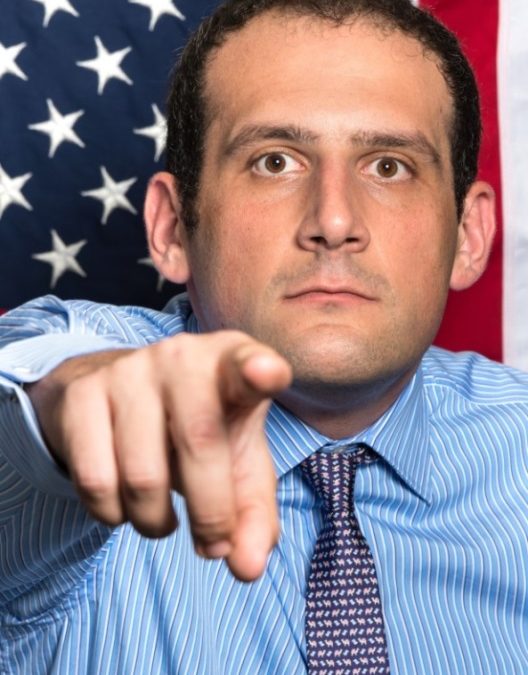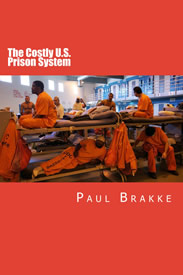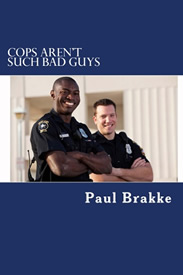 Prosecutors wield extraordinary power, but just as easily as they can put true criminals behind bars, they can destroy the lives of innocent defendants.
Prosecutors wield extraordinary power, but just as easily as they can put true criminals behind bars, they can destroy the lives of innocent defendants.
Prosecutors are expected to seek truth and justice, and it is important to support prosecutors who are dedicated to those goals. After all, they are part of our defense against the bad guys.But prosecutors are also saddled with tremendous pressure from supervisors to aggressively pursue convictions or score “winning” plea bargains.
Often the push to gain convictions — and the praise that follows a conviction — can overcome the prosecutorial directive to seek what is true and just.
So prosecutors selectively choose which cases to prosecute and how, with limited checks on their conduct. Prosecutors may be the single group most responsible for our bloated prison system, on account of harsh prison sentences doled out to low-level criminals involved in non-violent crimes.
Prosecutors are hardly ever punished for their transgressions. Consequently, many prosecutors do everything possible to win, engaging in unethical behavior, knowing they won’t get punished. What kinds of unethical things do they do?
Hiding Evidence
One of the most common types of prosecutorial misconduct is not providing the defense team with all the evidence the prosecution has gathered, in particular evidence that is exculpatory (favorable to the defendant). While prosecutors are constitutionally obligated to share any evidence favorable to the defendant with the defense, they are essentially immune from prosecution themselves. Consequently, prosecutors often ignore this obligation.
An example is a prosecutor who knows that a witness has recanted his or her statement against the defendant, that a witness is lying, or that the results of an investigation or crime lab test have undercut their theory of the case, but still does not show it to the defense, and/or does not close the case. Worse, in some cases a prosecutor may actively destroy this evidence, or fabricate other evidence to win the case.
These serious breaches of the public trust make a mockery of our justice system, and can lead to wrongful convictions or actions against a defendant. While the outcome of a wrongly convicted defendant may be shocking due to the injustice caused by a vengeful or neglectful prosecutor, another result is higher economic costs due to a wrongful incarceration.
Not only are there the costs of maintaining the convict in prison, but there is the loss of income from a productive citizen. Later lawsuits from defense attorneys may result, too, due to wrongful conviction and imprisonment. Worst of all, the actual perpetrator of the crime may still be at large and committing further crimes.
Ignoring Evidence of a Witness’s Lies, and/or Leaking Inflammatory and Prejudicial Information
Prosecutorial misconduct also occurs when a prosecutor improperly relies on the testimony of unreliable witnesses to make a case, or of those with an axe to grind. A prosecutor might rely on the use of “snitches” who are in jail or facing criminal charges. However, snitches are often unreliable witnesses, since they lie to reduce their sentence or to have the charges against them dismissed. Sometimes prosecutors deliberately reveal prejudicial and inflammatory information to the press to support their contention that a defendant is guilty in advance of a trial.
This is exactly what a prosecutor did in 2006 in the notorious Duke University lacrosse team case in which three players were falsely accused of rape by a stripper who was hired to dance for the group. The prosecutorial misconduct was so great in this very exceptional case that the prosecutor was criminally charged for his crime, disbarred, fined, convicted, and served a short jail sentence. Among other things, the prosecutor, Mike Nifong, withheld critical evidence from the defense and did not test out the woman’s changing story for corroborating evidence.
Even though none of the DNA samples matched any of the Duke players, for many months he sought to make his case in the court of public opinion through media leaks as well as in court. But eventually Nifong was disbarred and convicted of criminal contempt for knowingly making false statements during criminal proceedings.
His sentence? A day in jail.
Why is prosecutorial misconduct so rampant and what can be done about it?
Motivations for Prosecutorial Misconduct
Sometimes, prosecutors in criminal cases engage in misconduct in order to obtain bogus evidence to convict defendants because they believe the defendants really are guilty. Other times, outside public pressures can easily sway prosecutors to gain a rapid conviction. More commonly, prosecutors are faced with immense pressure from supervisors to win cases. As a result, despite their affirmative duty to turn over all evidence to the defendant, many do not do so, because they feel pressure to obtain a guilty verdict at all costs.
This may not always qualify as “misconduct,” since they may appear to be just doing their job in actively pursuing a guilty verdict, although ethically prosecutors are supposed to seek the truth. Yet, in a misguided effort to quickly convict and punish a suspect, prosecutors may fail to pursue the truly guilty criminal, because they have focused on the wrong individual, as a result of ignoring other facts or evidence.
Suggested Solutions
Since the power of prosecutors is nearly absolute, and most innocent defendants are seriously “outgunned” by the prosecutors’ power, it is important for us to change things. Some recommended changes are the following:
- First, we must stop absolute immunity for prosecutors from prosecution and sanctions, and introduce more restricted immunity that would hold them accountable for their transgressions.
- Secondly, just as lawyers need to go back every year or two for refresher classes on ethics, prosecutors should be required to attend a similar program for prosecutors each year to remind them of their sworn duty to pursue the truth.
- Third, we should increase the pay for prosecutors, since they are poorly paid compared to most lawyers. With more pay, they may be more willing to focus on the merits of the case and less likely to view getting a guilty verdict irrespective of the merits as a stepping-stone to a higher-level position with more income.When one values something and plans to hold onto it for a long period, one treats it better, and with respect.
Additional discussion of this topic can be found in my book: Fixing the U.S. Criminal Justice System.




